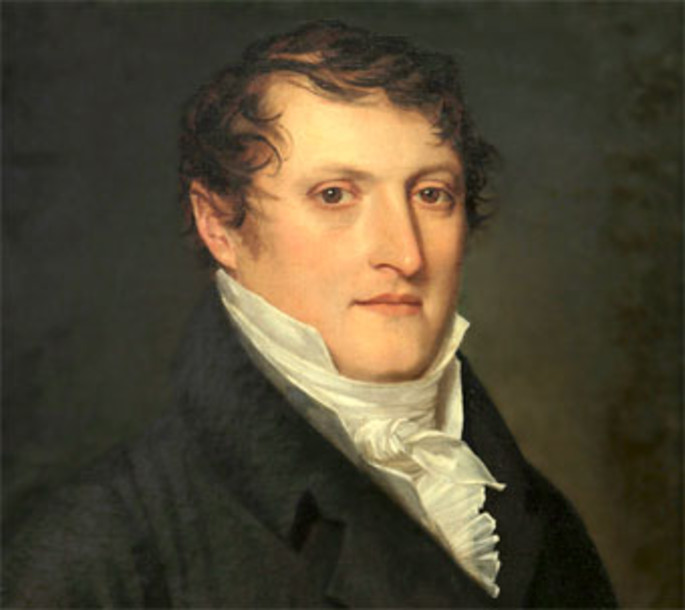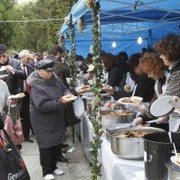Manuel José Joaquín del Corazón de Jesús Belgrano (June 3rd 1770 – June 20th 1820), usually referred to as Manuel Belgrano, was an Argentine economist, lawyer, politician, and military leader. He took part in the Argentine Wars of Independence and created the Flag of Argentina.
He was the son of Domenico Belgrano - a businessman of Ligurian origin, born in Imperia Oneglia - who changed his last name, Peri, into the Spanish Pérez; his father arrived in Buenos Aires in 1754 and was a merchant authorized by the King of Spain to move to America.
Manuel Belgrano came into contact with ideals of the Age of Enlightenment during his studies in Spain at the time of the French Revolution. Upon returning to America, where he became a notable member of the criollo population of Buenos Aires, he sought to introduce new political and economic ideals, but found much resistance from the colonial administration. This situation prompted him to desire greater autonomy for his land from the Spanish monarchy. During the imprisonment of Ferdinand VII, he favoured the May Revolution, on May 25, 1810. He was later elected member of the First Executive government established in Buenos Aires after the revolution.
He led the military campaign of the revolutionary army in Paraguay, and, although he was defeated, he started the chain of events that led to the independence of the country. In 1812, he created the flag of Argentina in the city of Rosario and led the army that defeated the Spanish, then replaced by José de San Martín.
Later, Belgrano went to Europe on a diplomatic mission with Bernardino Rivadavia in order to find support for the revolutionary cause. He was able to return in time to take part in the Congress of Tucumán, who in 1816 declared the independence of the United Provinces of Río de la Plata. Belgrano died of dropsy in Buenos Aires on June 20, 1820.
In Imperia Oneglia, on Borgo Peri marina, Manuel Belgrano’s bust can be found, to celebrate his Ligurian origins and it is a symbol of the close ties between Argentina and Liguria.






















